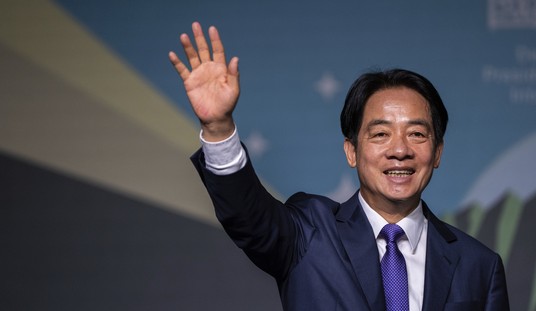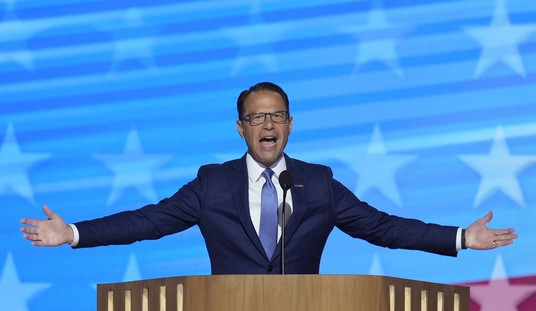This is a terrifying story for a blogger to write about because it’s (a) potentially hugely significant and yet (b) about a nation that’s almost completely obscure to most Americans, and by “most Americans” I of course mean “me.” Per the first point, though, I want to put it on your radar screen in case tremors from this earthquake start registering elsewhere.
Mother Jones has a useful bullet-point primer of how things came to a head, but there’s an easy way to get a quick handle on the basic narrative: In a word, “Ceausescu.” The president, Zine el Abidine Ben Ali, took power in 1987 and turned the country into a police state via the familiar routes — repression and torture of political opponents, an overweening cult of personality, and appalling kleptocratic corruption. Sounds like every other Islamic autocracy on record, no? But wait. Tunisia might surprise you:
Tunisia is far different from most of its neighboring Arab countries. There is little Islamist fervor in the country. It has a large middle class, and under Mr. Ben Ali, it has invested heavily in education. Not only are women not required to cover their heads, they enjoy a spectrum of civil rights, including free contraception, that is well beyond that in most countries in the region…
Some demonstrators said they hoped that other Arab countries would follow their example despite the many differences between their country and many of those nations, where popular discontent is often expressed in the language of Islam.
The trade-off for the past 23 years, in other words, was absolute power for Ben Ali in exchange for a better quality of life than most other majority-Muslim states enjoy. And that’s how things went until this past year, when unemployment soared (the official rate is 14 percent, the unofficial one surely much higher) and suddenly that quality of life wasn’t quite as good as it had been. The catalyzing moment came in December, in an episode recounted just before New Year’s by the Guardian:
Twenty-six-year-old Mohamed Bouazizi, living in the provincial town of Sidi Bouzid, had a university degree but no work. To earn some money he took to selling fruit and vegetables in the street without a licence. When the authorities stopped him and confiscated his produce, he was so angry that he set himself on fire.
Rioting followed and security forces sealed off the town. On Wednesday, another jobless young man in Sidi Bouzid climbed an electricity pole, shouted “no for misery, no for unemployment”, then touched the wires and electrocuted himself.
On Friday, rioters in Menzel Bouzaiene set fire to police cars, a railway locomotive, the local headquarters of the ruling party and a police station. After being attacked with Molotov cocktails, the police shot back, killing a teenage protester.
That’s how it started — with Bouazizi as a Tunisian Neda and resulting protests over the economic despair that drove him to self-immolation. But as the demonstrations and riots dragged on into this month, they started to turn political and Ben Ami began to get nervous. There were anecdotal reports, and dramatic photos, suggesting that the army was siding with the demonstrators. He tried to cool things down yesterday by announcing a series of political reforms, including more freedom to demonstrate and elections within six months, but that only encouraged them: Tens of thousands flooded into the streets of the capital this morning, according to the Times, and by this afternoon Ben Ali was gone — the very first time that popular protests have toppled an Arab dictator.
For the moment, the prime minister’s in charge:
Prime Minister Mohammed Ghannouchi said late Friday in a televised address that President Zine El Abidine Ben Ali has surrendered power and left Tunis…
Al Arabiya said a six-member leadership council would be formed to rule the country until elections. The council will be led by the head of Parliament and will include the defense minister.
Ben Ali had reportedly fled to Malta and was traveling under Libyan protection, Reuters reported…
The shakeup was certain to have repercussions in the Arab world and beyond — as a sign that massive public outrage could bring down a leader as entrenched and powerful as Ben Ali.
The Times piece linked above is worth reading in full for the details about how protesters used Facebook and Twitter to coordinate — a feature of the “Green Revolution” uprising in Iran in 2009 too, as you may recall. The hope here, of course, just as it was during the “Cedar Revolution” in Lebanon in 2005, is that the people will not only win a democracy for themselves but will inspire other oppressed populations in the Middle East to confront the strongmen in their midst. Which, if it happens, could be great news or not so great news, depending upon how liberal/radical the population is vis-a-vis their particular strongman. Given the state of the Cedar Revolution these days, I’m not optimistic; and given how shattered Tunisian politics has been by 23 years of having Ben Ami’s boot on its throat, there’s no telling who or what is going to come out of this to govern that country. For the moment, though, at least there’s some hope. Long, long time coming.







Join the conversation as a VIP Member